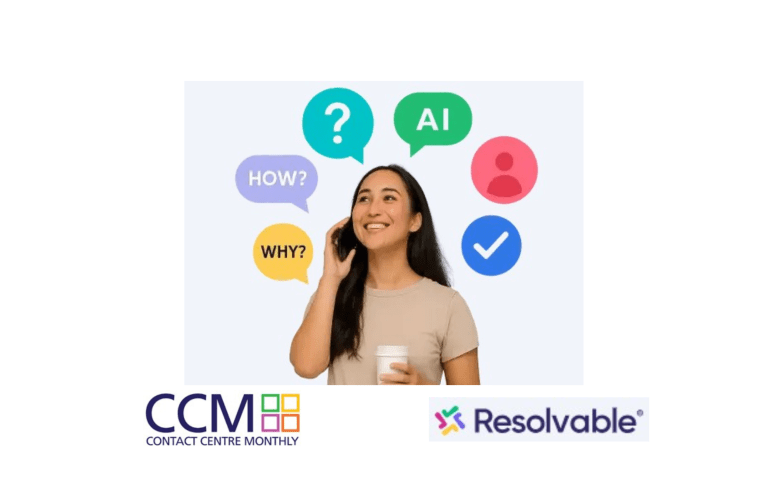AI is revolutionising for customer service, making once arduous, time consuming systems seamless and efficient. From handling FAQs to resolving basic queries, AI can streamline repetitive tasks, significantly reduce wait times, and free up time for human customer advisors to focus on tasks that require unique human experience.
While AI can be a revolutionary tool, automated customer service cannot thrive without human oversight. It is essential that AI systems are implemented ethically and monitored by humans, as at its core, customer service often relies on flexibility, individual customer needs, and nuance – something AI alone struggles to replicate.
Jonny Murphy-Campbell, Commercial Director at Resolvable explains the importance of strategically choosing which aspects of customer service to automate: “There are things AI can do that humans simply can’t perform as quickly or accurately – such as scanning information in real-time and analysing data at speed – and equally things humans can do, that AI can’t. Customer service interactions often need a human touch, whether it’s a complex, nuanced matter, a sensitive or emotive situation, or building long-term trust and loyalty in a business, AI needs human intervention. Integrating the two simultaneously is the optimal solution to streamlining customer service.”
Here are 4 customer service tasks that should not be solely automated:
1. Handling complex complaints
Multiple issues and longstanding frustrations? As the customer you just want a real person on the other end of the line to provide judgement, nuance, and take the context into consideration.
Humans have unique experience to apply their judgement and empathy to complex matters, something AI would struggle to replicate. Without this human agency, AI has a tendency to oversimplify matters, and respond categorically, which can risk customer dissatisfaction.
Customer service requires considered, personalised, and tailored responses, and it’s important that conversations are quality-checked and monitored by people.
2. Sensitive matters
Handling sensitive matters like bereavement, financial struggles, health-related concerns, or any other personal challenge is something all humans can empathise with.
AI can’t offer human empathy, but responses don’t have to be blunt or generic. With human oversight they can be tailored to the customer, and where human understanding and warmth is required, AI systems can ensure they are responded to quickly and efficiently – ensuring long waiting times are not exacerbating their challenges.
3. Building long-term trust
Customers value efficiency more than ever. We’re accustomed to the digital era, where everything is instantaneous, and customers value speed – something AI has revolutionised.
Trust is built by customers consistently being heard, understood, and respected. It’s paramount that customers feel supported with automation-first systems; human oversight of AI customer service ensures the best of both worlds – fast, accurate solutions, and quality-controlled, nuanced responses.
4. Emotionally-charged conversations
While rapidly evolving and able to apply sentiment in customer service responses, AI is not yet able to be adaptable and empathetic to the escalation of emotionally-charged situations. Humans are able to adapt in situations where tensions are rising, applying judgement and experience to pragmatically diffuse situations. AI, when coupled with human oversight, allows for the optimal blend of efficiency and relevance.
About Resolvable:
Resolvable is an AI-driven customer service platform built to help businesses deliver faster, smarter, and more efficient support. With a human-regulated, automated model, Resolvable keeps human oversight in place to safeguard empathy, accuracy, and trust, quality checking 100% of customer service interactions. Resolvable reduces response times and operational costs, while providing relevant customer support.


